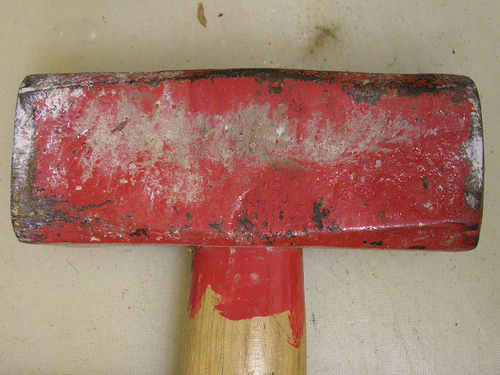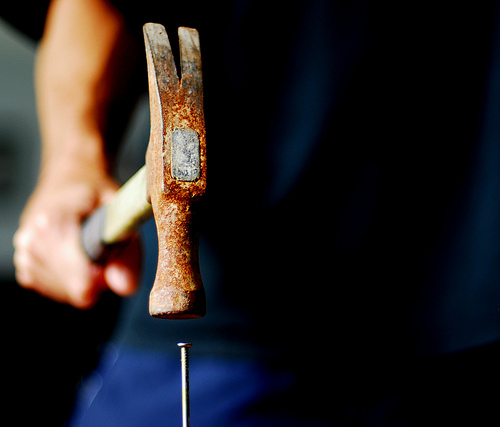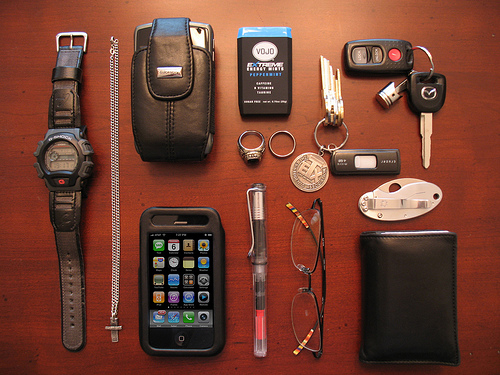
When I go grocery shopping I never get a cart. I restrict myself to one of my supermarket’s large baskets, which limits me to essential purchases, and ensures that whatever I do buy will fit into the two nylon bags I bring with me.
Most of the groceries I buy are particularly dense items: tofu bricks, fruit, bulk nuts, tubers and the odd condiment in a jar. I don’t buy boxed cereal, lettuce, chips, or anything else that would fill up the basket without offering much nourishment. I end up with two bags so heavy that plastic wouldn’t do. My car is a two-door, so the bags ride beside me in the passenger seat.
I rent a condo in the city’s most densely populated area and I depend on street parking, so sometimes I have to march the mega-bags a block or two to get to my door. When I do my shopping on the way home from work, I also have to carry a backpack, a suitcase-sized GPS, and a big laptop.
I load up as evenly as I can, close the door with my bum, and begin my half-kilometer farmer’s walk. Often it’s in extreme heat or cold. Eventually, straps begin to slip, my shoulders and fingers begin to burn a little, and it invariably becomes more uncomfortable the longer I have to walk. There are two doors and two steps along the way
I used to really hate this particular part of my life. In my old apartment I had a reserved parking spot so the walk was never more than fifty paces and one or two steps to climb, but it was such a worse experience than it is now. I used to dread it. It was like a final kick in the chest after working all day.
Now, it’s like water. For a while now I’ve known that the way to deal with physical discomfort is to open up to it, rather than close up to it. I used to grit my teeth and, in my mind, lean toward the moment when I can drop the bags onto my table and the discomfort is over. This does not defend against pain, but it’s what I always did and what most people seem to do.
I now see all instances of minor physical discomfort as a chance to get better at being relaxed. I relax into the discomfort, I let it hang out with me. When you first try it it’s an exhilarating experiment — to voluntarily open up to minor pain when that’s what the moment brings you, to refrain from listening to the impulse to cringe or harden. It feels like you’re walking freely in an area you thought you weren’t allowed to go.
It’s relatively easy to do with minor discomfort. Life gives you endless minor discomforts, all of them opportunities to retrain this impulse, and then when tougher things happen, the impulse is still there. Instead of cringing, you release and allow. You look right at it. Nothing else makes sense. Read More









 I'm David, and Raptitude is a blog about getting better at being human -- things we can do to improve our lives today.
I'm David, and Raptitude is a blog about getting better at being human -- things we can do to improve our lives today.
I think relapsing is completely normal (happens to me all the time) and you shouldn't beat yourself about it. The key is simply to get back to the routine eventually. Like in meditation, your thoughts will always wander off and you just get back to your focus on the breath...